The M23 “version 2” – Local stakes, motivations, perceptions, and impacts

Since 2021, the eastern part of the Democratic Republic of Congo (DRC) has once again fallen victim to the “March 23 Movement” (M23). Supposedly defeated in 2013, the M23 took up arms again in 2021, and by 2022 had rapidly seized vast territories in the south-east of North Kivu province.
Due diligence and corporate accountability in the arms value chain

Given the nature of the products commercialised by arms value chains, and their potentially devastating impacts on human dignity, states have a strict obligation to control operators in this economic sector. But is compliance with export controls sufficient for companies to assess risks to human rights? This report analyses the possibility and necessity of establishing corporate responsibility and accountability for companies active in the arms value chain.
Roadblocks in Masisi and Walikale: Predation on movement in turbulent times
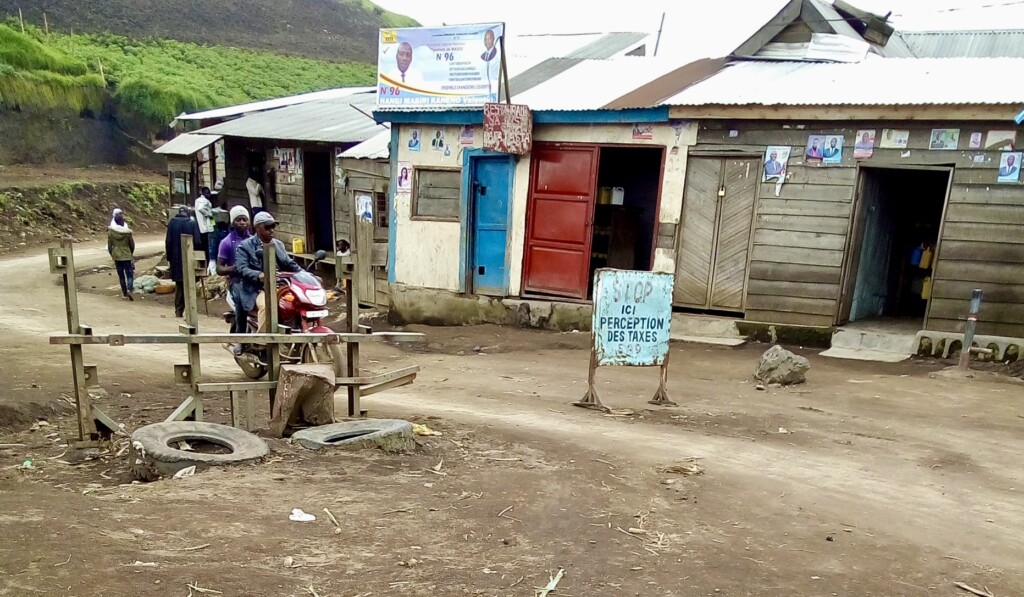
While minerals have centered in research on conflict financing in the Democratic Republic of the Congo, armed actors often rely on alternative sources of revenue to finance their struggles. Among these are the operation of roadblocks. In this report, produced together with ASSODIP and the Danish Institute for International Studies, IPIS studies the linkage between […]
Belgian arms exports to Israel: The discrepancy between words and deeds in export control policy
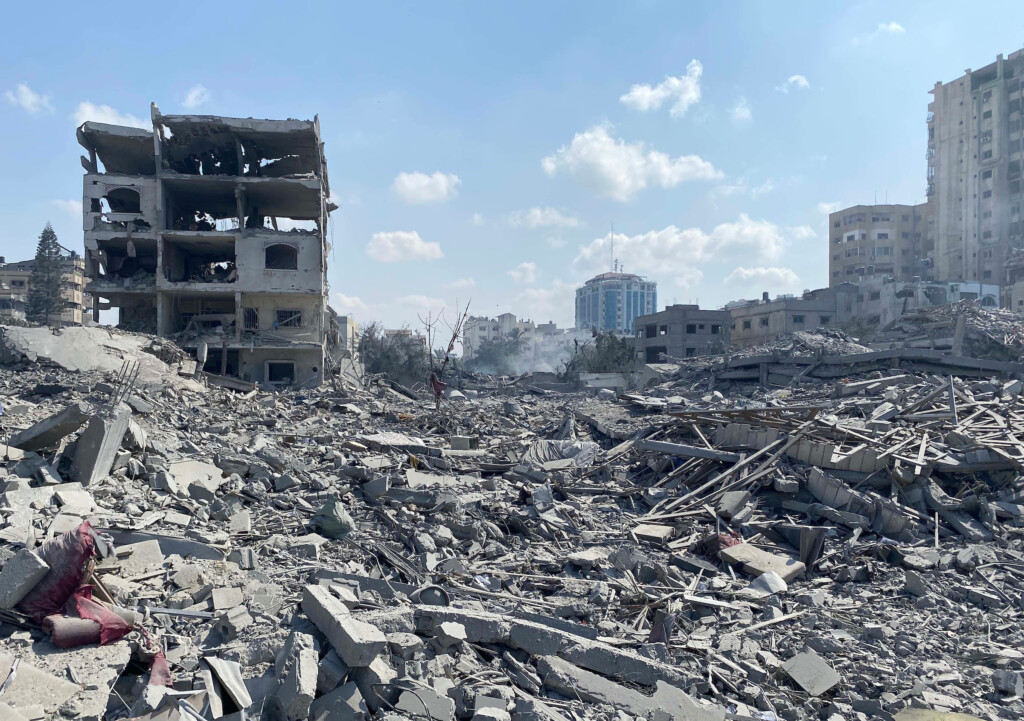
In this report, Vredesactie and IPIS take a critical look at Belgium’s policy on the export and transit of defense-related goods and dual-use goods to Israel. The new Gaza war puts this arms trade policy back in the spotlight. The regional governments, responsible for arms trade, regularly claim to assume the highest standards. And […]
Analysis of the interactive map of artisanal mining areas in eastern Democratic Republic of Congo (2023 update)
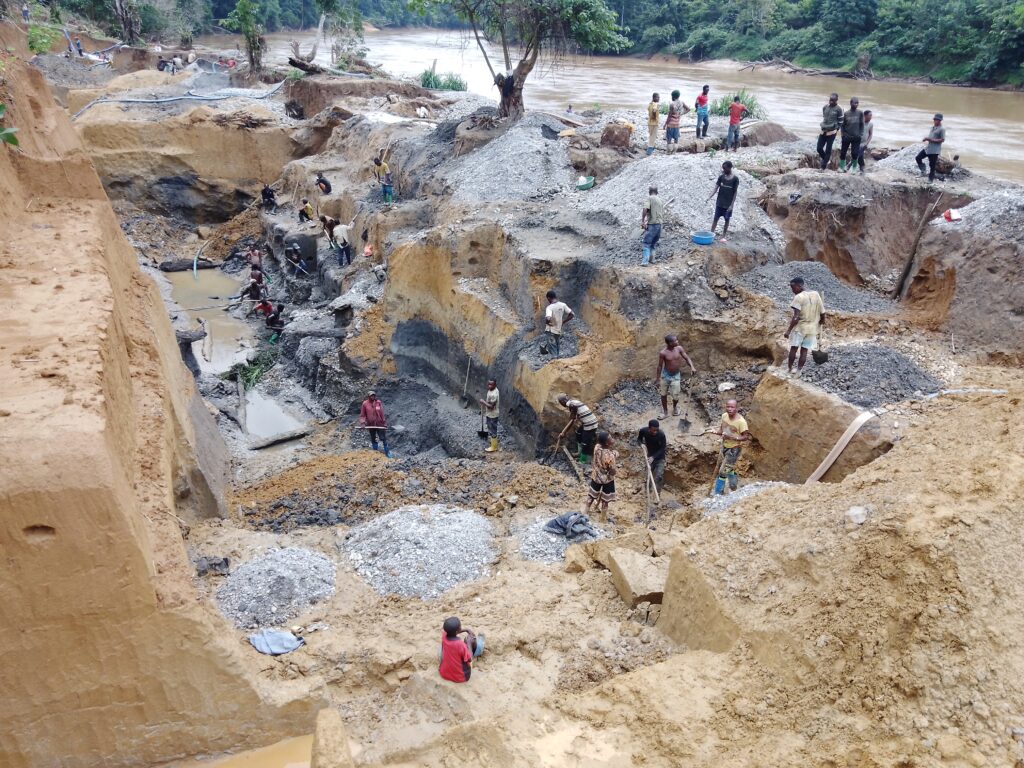
Since 2009, IPIS has mapped and collected data at more than 2,800 Artisanal and Small-scale Mining (ASM) sites in the eastern Democratic Republic of the Congo (DRC). In this report, IPIS provides its 2023 update of the state of ASM in the eastern DRC, based on data from over 829 ASM sites in the eastern […]
Increasing awareness of policy reforms on gender equality issues in artisanal and small-scale mining in eastern DRC: Case study of the Numbi, Nzibira and Nyabibwe sites
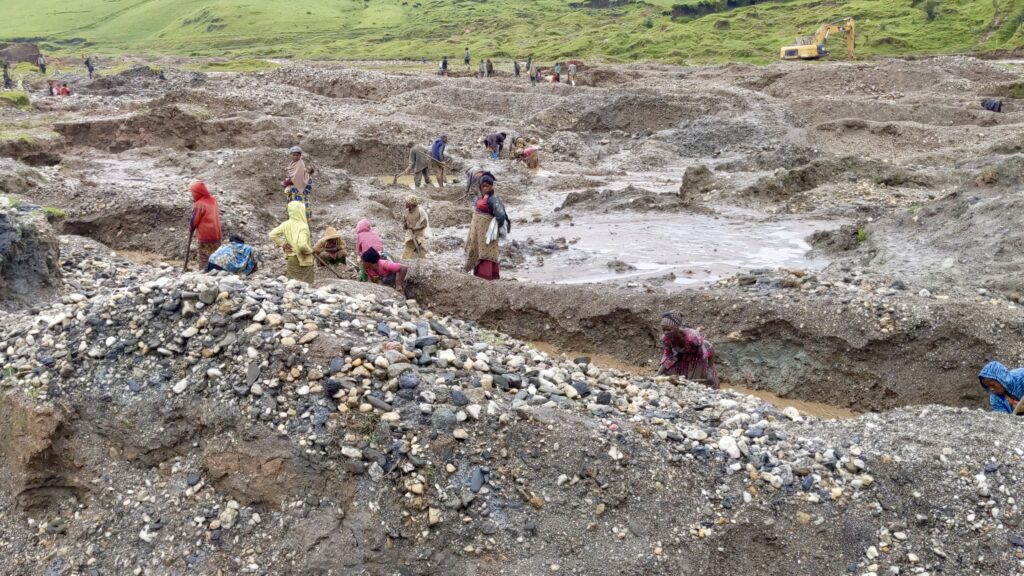
The mineral resources of the eastern Democratic Republic of the Congo’s (DRC) provide an important source of employment for both men and women involved in artisanal and small-scaling mining (ASM). Yet opportunities are not equal for men and women. Based on a series of interviews with various ASM stakeholders at the mines of Numbi, Nzibira […]
Petra Diamonds’ attempts to come clean with its tarnished past in Tanzania

Challenges in securing access to remedy and restoring community relations after serious human rights abuse at the Williamson diamond mine This report assesses the efforts by Petra Diamonds to restore community relations and remediate the legacy of serious human rights abuse at its Williamson diamond mine in Tanzania. In 2021, Petra reached a multi-million-pound settlement, […]
Mapping of artisanal mining sites in western Mambasa, Ituri Province, Democratic Republic of the Congo
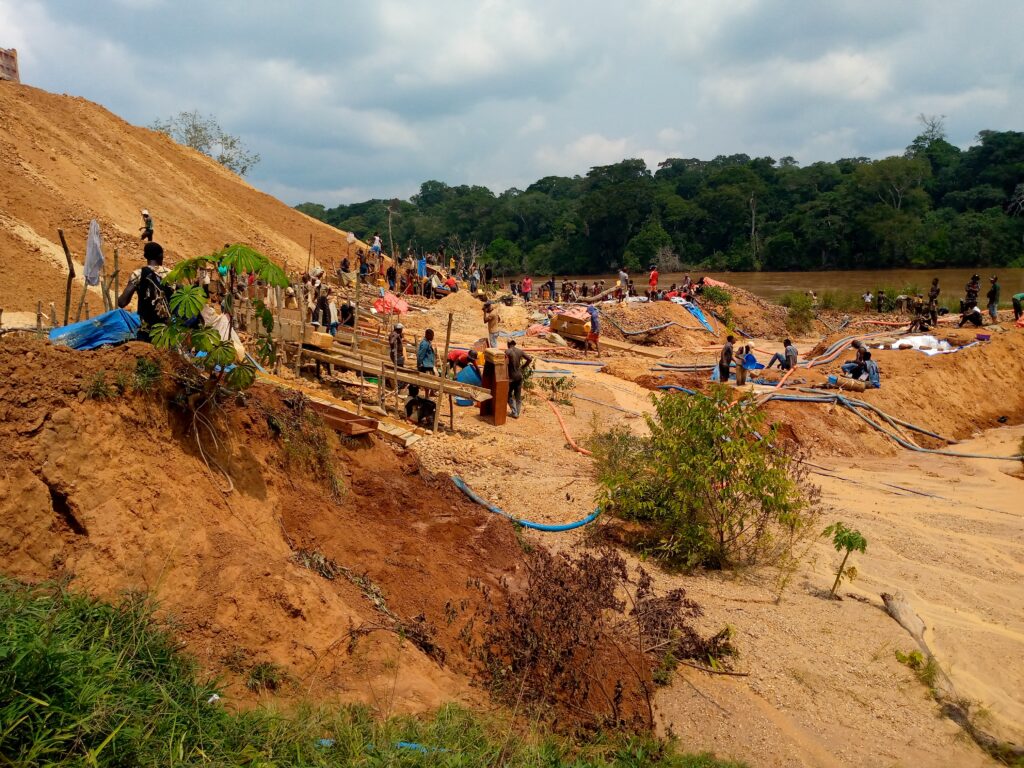
The western part of Mambasa territory, in Ituri province, has been overlooked by national authorities and international partners. This despite major expansions of artisanal and small-scale gold mining (ASM) operations, including in the Okapi Wildlife Reserve (OWR). These mining operations have caused tensions between native inhabitants, miners, armed actors, officials and conservationists. Seeking to provide an […]
The EU Conflict Minerals Regulation: High stakes, disappointing results

The EU Regulation on the responsible supply of tin, tungsten, tantalum and gold (3TG) originating from conflict-affected and high-risk areas (CAHRAs) came into full force on 1 January 2021. Also known as the “Conflict Minerals” or “Responsible Minerals” Regulation, it aims to break the link between the exploitation and trade in 3TG on the one hand, and conflict […]
Securing insecurity: Semi-industrial gold mining and violence in Mwenga, South Kivu, Democratic Republic of Congo

Since 2011, gradual introduction of novel mining equipment such as crushing mills has led to the increasing mechanization of artisanal gold mining operations in Mwenga territory (South Kivu), including the arrival of semi-industrial mining companies. This report is part of a USAID-funded project examining the linkage between armed conflict, insecurity and natural resource exploitation in […]
Armed groups, territorial control, land disputes, and gold exploitation in Djugu, Ituri, Democratic Republic of Congo

In late 2017, almost fifteen years after the end of the second Congo war, and after several years of relative peaceful coexistence, inter-communal tensions flared up once again in Ituri province, in eastern Democratic Republic of Congo (DRC). In December 2017, isolated violent incidents between members of the Hema and Lendu communities provoked an escalation […]
Unconditional Cash Transfers (UCT) in the DRC: Midline results of a pilot study in an artisanal mining zone in Maniema province

In October 2021, the Belgian non-profit organization Eight World, started a pilot project of Unconditional Cash Transfers (UCT) in a village in an artisanal mining zone in the territory of Pangi, in Maniema Province, in the Democratic Republic of Congo (DRC). Eight World transfers cash directly to individual beneficiaries via a mobile money system. Each […]
Taxes and levies in the artisanal mining sites of South Kivu and Ituri: How much does an artisanal miner pay?
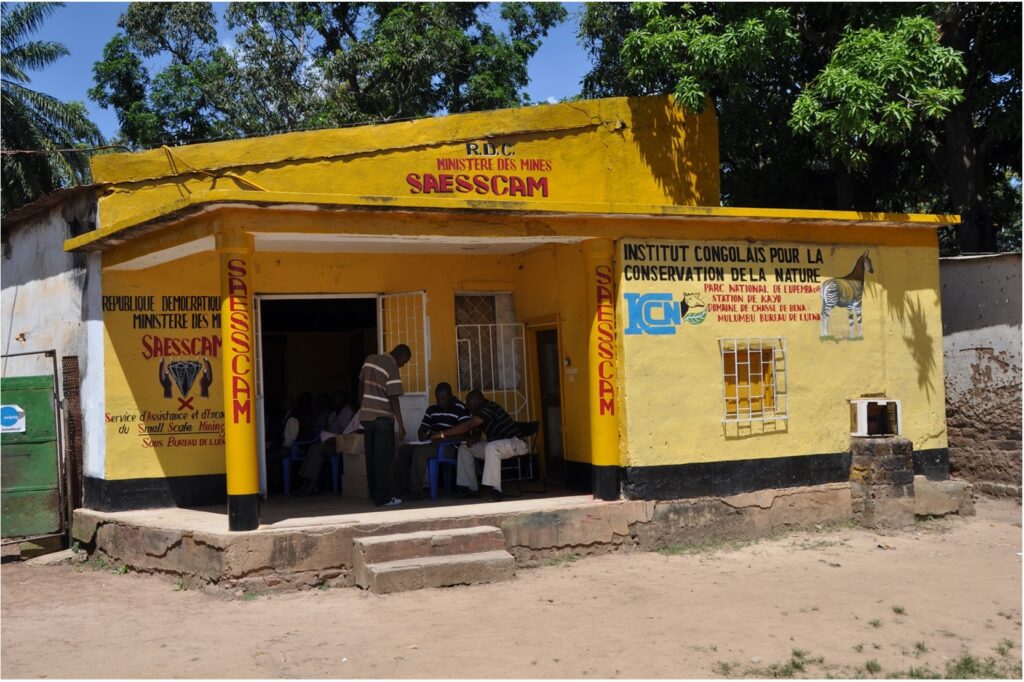
This report is the result of a large-scale field study on taxation in the artisanal mining sector in the eastern Congolese provinces of Ituri and South Kivu. The main finding is that current regulations and practices in the field not only cause mineral smuggling, which leaves some of the sector’s fiscal potential untapped at the […]
A human rights perspective on arms export licencing and access to information
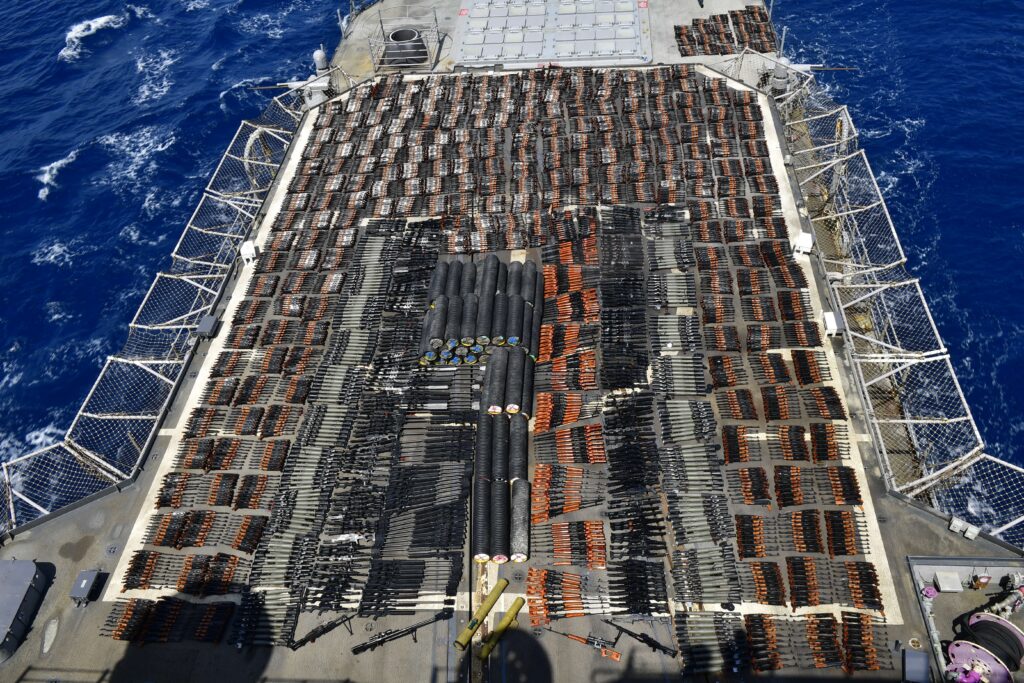
Arms export licensing has long been dominated by two rationales: an interstate perspective and intrastate perspective. In the former arms licensing enables trust-building between nations while the latter increases government accountability. A human rights perspective is overdue in arms export licensing. Victims and their defenders should be able to pursue effective remedy when harm is inflicted on […]
Armed conflict, insecurity, and mining in eastern DRC: reflections on the nexus between natural resources and armed conflict

This report offers a new framework for looking at the eastern Congo conflict, one within which new evolutions of the past twenty years find a place. Indeed, violent conflict in eastern Congo has changed dramatically in all its aspects over the past two decades. Yet too often policymakers and observers appear to assume that we […]
Analysis of the interactive map of artisanal mining areas in eastern Democratic Republic of Congo – 2022 update
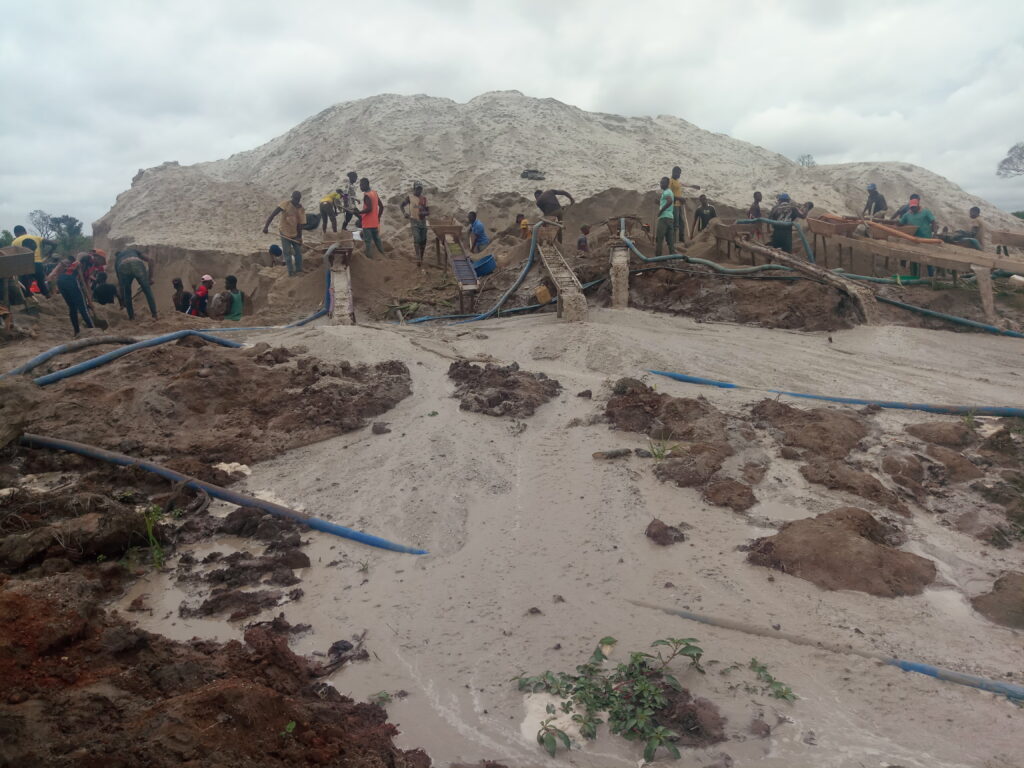
In eastern Democratic Republic of Congo (DRC), the artisanal and small-scale mining (ASM) sector plays an important role in the local economy. While large-scale armed conflict over DRC’s mineral wealth has decreased significantly over the past twenty years, armed actors continuously interfere in the mining sector, and conflicts over resources at the local level are still common. Based on new mining site visits, IPIS analyses recent trends.
Famine as weapon of war – A timeline of the Tigray conflict

In May 2021 CNN reported that Eritrean troops in coordination with the Ethiopian military were blocking aid deliveries to parts of Tigray not under Ethiopian government control. In an exclusive interview with Reuters a senior UN official alleged that starvation was being used as a weapon of war. U.N. humanitarian coordinator Mark Lowcock told Reuters […]
Matokeo – Data collection on ASM in eastern DRC
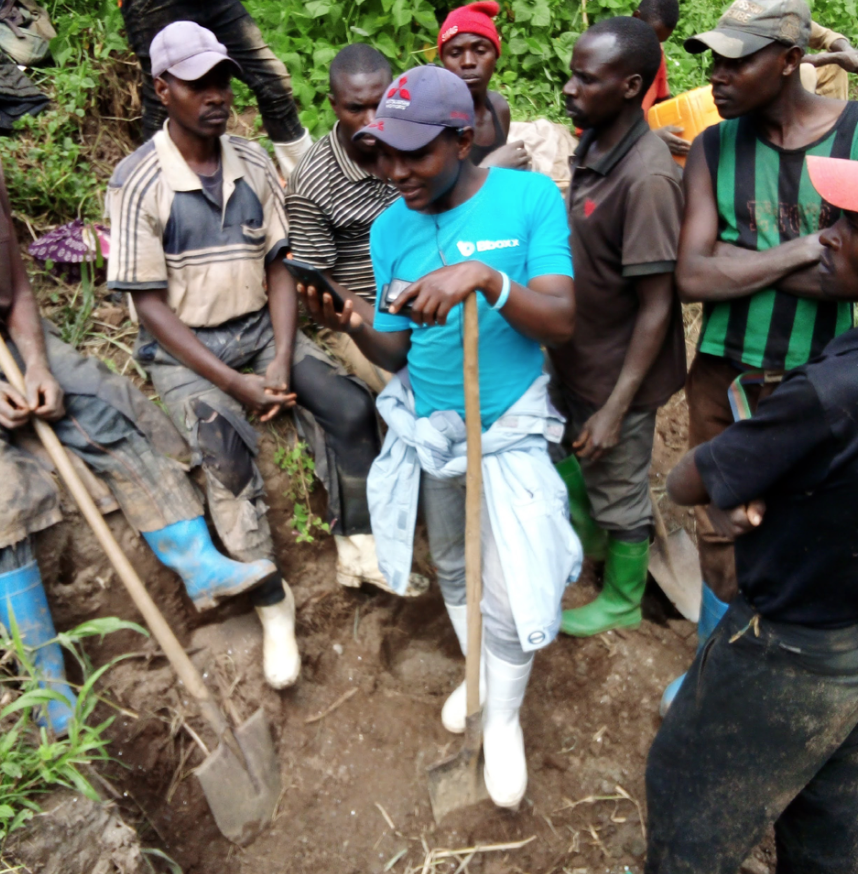
‘Matokeo’ (meaning ‘impact’ in Swahili) is a data-driven platform operating in the Democratic Republic of Congo (DRC) with the ability to reach last mile artisanal miners, enabling them to ping the latest international price of gold. Conceptualized by Ulula and the International Peace Information Service (IPIS), the project won a Conservation X grant in October […]
Responsible mining scorecard in eastern DRC
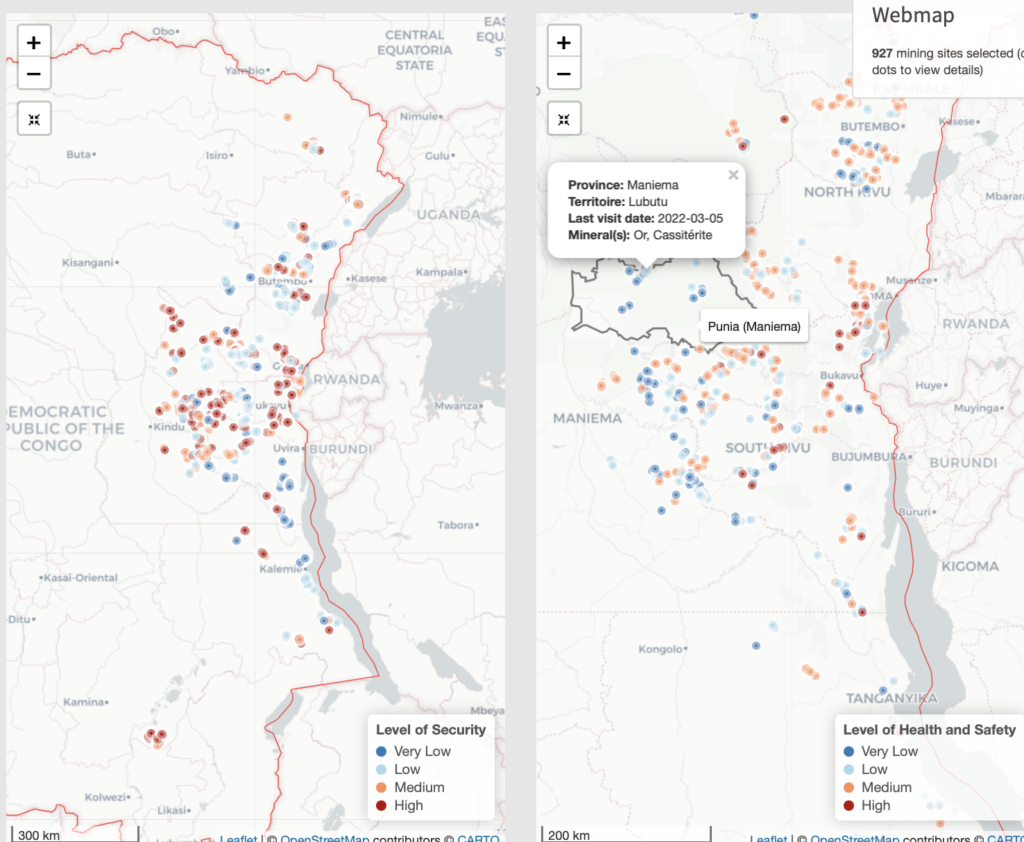
Over the years, IPIS has systematically collected mine site and trade hub level data on artisanal and small-scale mining (ASM) in eastern DRC. This data collection has enabled IPIS to generate a sizable database of more than 3,000 ASM sites that draws both on sites visited by IPIS and data from third party sources including the Congolese mining cadastre and the Ministerial qualification teams. This database is the point of departure of the Responsible mining scorecard (RMS).
Unconditional cash transfers in the DRC: A comparative baseline study in an artisanal mining zone in Maniema Province
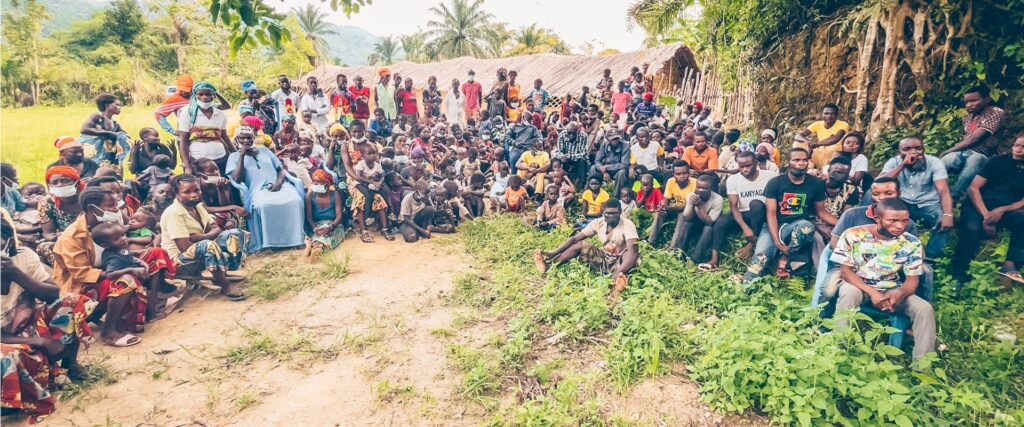
A controlled impact study will be conducted by IPIS to evaluate the net effects of Unconditional Cash Transfers (UCT) on the socio-economic well-being of recipients. A controlled study approach allows potential effects of the intervention to be assessed by monitoring specific indicators in the group of people receiving cash transfers (inhabitants of the UCT village), […]

